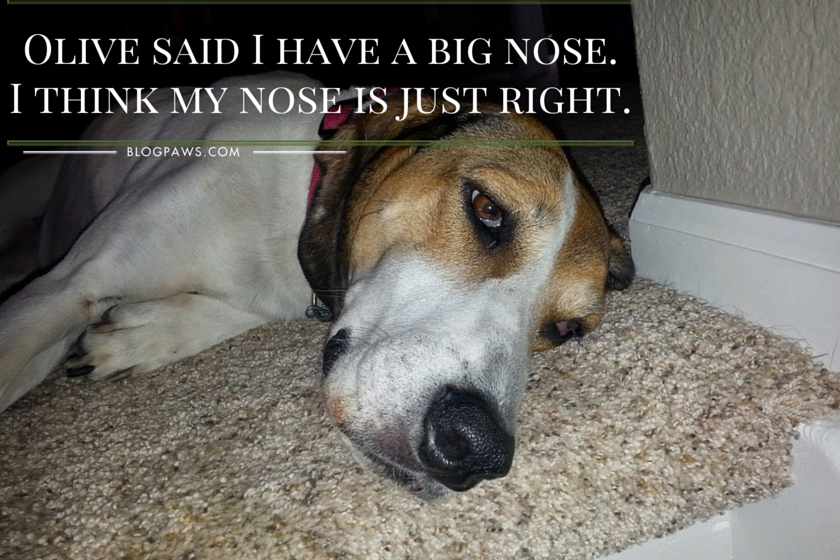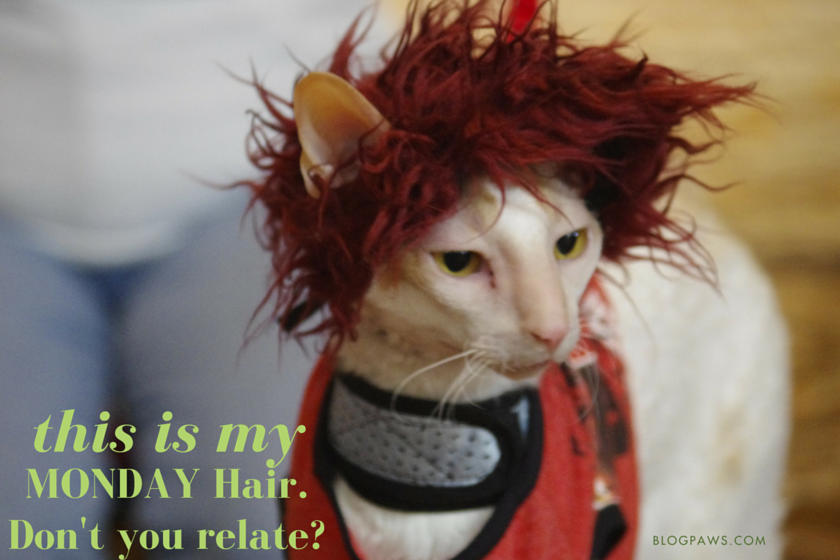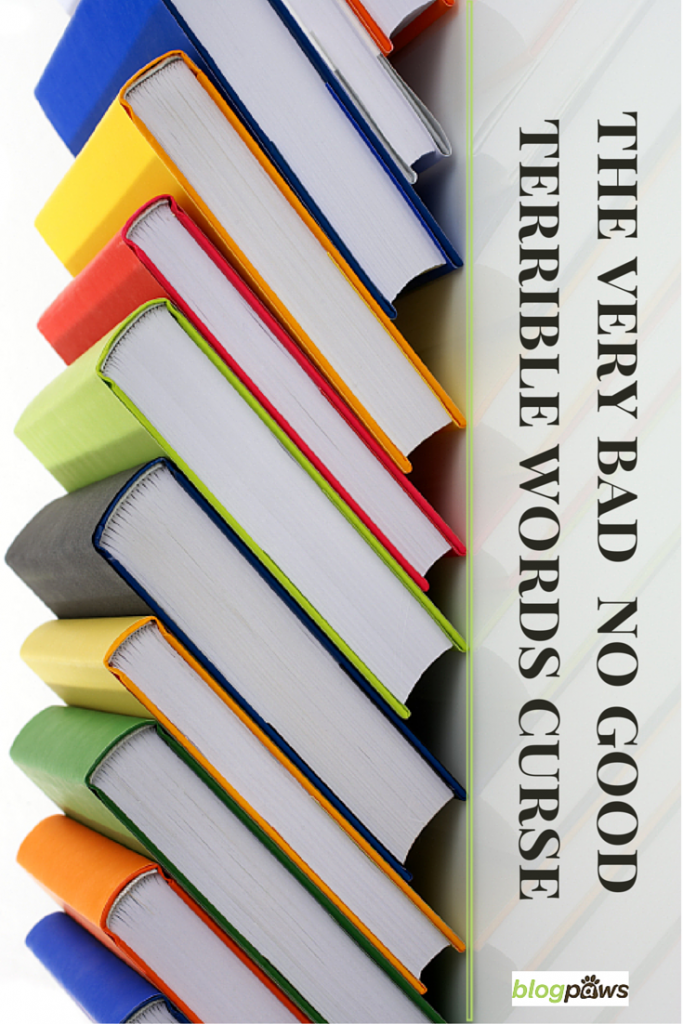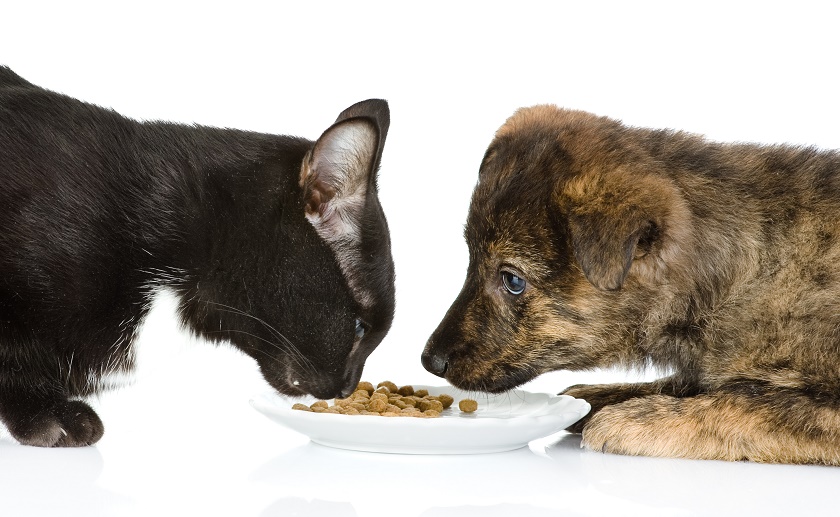The VERY Bad, No Good, Terrible Words in Your Blog Post
Post by Yvonne DiVita, BlogPaws Co-Founder
Let’s talk about words. Let’s talk about being selective of the words we choose. Let’s talk about the power of words. Shall we?
As a budding writer back in high school, I was enamored of adjectives. I added adjectives to every sentence. I made sure the readers of my work would understand when I said VERY this or that or the other thing. Very, after all, makes everything so much better, don’t you agree?
I loved qualifying dialogue, also. Oh yes, if my protagonist was in a bind, I made sure said protagonist was obvious about her dilemma.
“Oh my!” she exclaimed in distress. “I shall never survive this,” she proclaimed to the trees and the grass. “It’s the end of me, now!” she lamented.
Or, if the antagonist was especially nasty (and aren’t they all?), I wrote, “You’ll never escape!” he sneered greedily. “You’re my slave now,” he growled angrily.
I was particularly fond of ‘ly’ words.
Then I grew up. I studied language and writing. I read the classics: Hemingway, Fitzgerald, Austin, Sanders and, yes, Stephen King. I did not merely read them as entertainment. I studied how these masters wrote, both in narrative and dialogue.
And that is why I am writing this post. I find myself reading blogs (oh not your blog, surely!) that have not taken time to study the craft of writing. I find posts with great potential, but lacking in finesse. I understand that many of us bought into the purpose of blogging – that it’s a conversation and in order to keep it authentic, it needed to be in your voice, whatever that was or is.
Yes, I realize as I read blogs today that our description, in those early days, is coming back to haunt us.
For the truth is a little different.
The truth is I stand by the purpose of blogging to be a conversation. I even support and will defend allowing you to write your blog in your voice.
However, in this big world we live in; in the blogosphere, which grows daily by leaps and bounds; in our desire to share our thoughts and our learning, I also know that writing well will determine your success.
Today, I will share some very bad, no good, terrible words in your blog post in an effort to help you understand why they need to die a terrible death at your fingertips. And, you will then make the determination on whether or not to kill them. I only ask that you not make it too bloody. Leave the blood to Quentin Tarantino. Do we have a deal?
- Very. Ask yourself, Is this word necessary? Is the sentence fine without it? We know there is no such thing as ‘very’ pregnant, unless you’re being humorous. In too many other cases, the word very acts as a crutch. Describe your scene with strong, impressive words and you will not need to rely upon very.
- Consider removing the “ly” words from your work. When you reread your post, try it without the adverbs. Is it weaker or stronger? Can you convey the meaning with colorful words not ending in “ly”?
- In my case, above, I could have said, “How will I survive?” she said, out loud. She was trying to think, assess her situation, find a way to escape! And, for the villain, “She’ll never find the way out,” he said in a whisper. He was watching her through his two way window. His glee at knowing her efforts to escape would be futile, set his thin lips in a sneer. (Let me add, I use the word “and” far too much. You will never know that because I remove it on rereading, and make shorter, more powerful sentences, instead.)
- Just stop writing…just. It’s bad form. We rely on this word in conversation without thinking about it. In our writing, this word takes away from the flow of the sentence and therefore, the flow of the paragraph. Anything that makes your reader pause (unless you want the reader to pause) is a very bad, no good word. The word just makes the reader pause.
- As noted on The Write Practice, the word “thing” is troublesome. I agree with the advice, “… the word “thing” is a shortcut and a sign of vague, watered-down writing. If you see it in your writing, think hard about what you’re really trying to say.”
- If you’re using the word “that” repeatedly, go back, read the passage out loud and see if removing it makes a difference. Chances are your sentence makes sense without this overused word.
- “Believe” as in, “I believe…” Or, “think” as in, “I think…” We want your expert opinion. If you’re offering your expert experience, I don’t want to know what you think or believe, I want to know what you know. Be assertive. Be specific. If you are unsure of what you know, I will be unsure of you. The folks at blog.crew.co get it right on this matter.
Emily, pictured above, is insulted. Olive thinks she has a big nose. No, I did not tell you she was/is insulted. But you knew, didn’t you? By reading the caption you knew how Emily felt.
This blog post cannot begin to teach you everything you need to do to improve your writing. Like Monday hair, you must tame it at your own pace. I share what I know only to nudge you in the right direction. Yes, it is possible to make your writing conversational, purposeful, and authentic, and still be you.
“No one said it would be easy,” she said. “No one said it would be fun.” She looked down her nose at the children, over the tops of her owl-rimmed glasses. “Now did they?”
No adverbs. No qualifying words. Just language. She said is fine. You learn the emotion conveyed in the dialogue itself, and the words showing how the dialogue was delivered.
Go forth. Write well. Never assume you are at your peak. Because, once you reach your peak, there is no where else to go…but down.
I am still learning. At present, I am reading Bird by Bird by Anne Lamott. It’s a book about writing. It’s a book about getting published. It’s a book about characters.
I read it because everything I write is based on character development. Everything I write is, to a point, a story. Real-life stories or not, everything we write is for or about character development.
In my life of sharing characters on my blog, I track down the very bad, no good, terrible words and slay them with glee. My wish today is to inspire you to do so, also.
Photo credits: Emily from Scratchings and Sniffings
Monday hair: BlogPaws Red Carpet 2014, Curlz and Swirlz, kitty (thanks to Teri Thorenstein)







